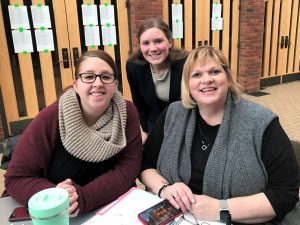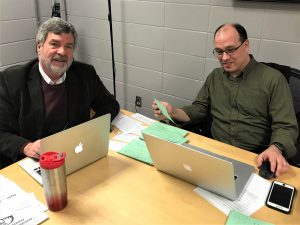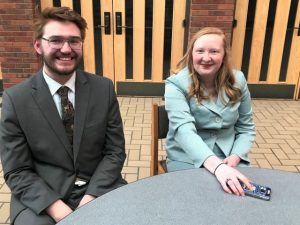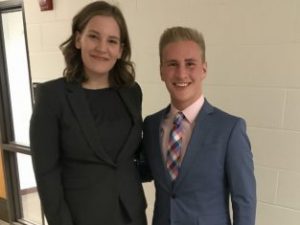Written by John Dewitt | Photos by Marceleen Mosher
“The level of professionalism– far too much.” – Latrice Royal
So, you want to enter a speech competition? Great! Competitive speech is a great way to improve your speaking skills (other than coming in to meet me at our Speaking Lab in Foss 171C). It offers a healthy competition for those who are looking to push their speaking skills to the next level. I would like to inform you about how these tournaments play out.
In high school, I participated in competitive forensics. Common categories include but are not limited to prose, duo, poetry, persuasive, informational, after dinner, and drama. I participated in prose and duo. However, be fair warned about the professional, competitive culture within speech tournaments. We’re not in high school anymore. The competition is high and the competitors have been training with a coach for months (Don’t worry! We have coaches at Augsburg too! You can speak with either Bob Groven or David Lapakko for more details!). If you think you can go into the tournament by yourself with no help from a coach, I salute you.
Every speech is 10 minutes long. So, it is best that you drill (aka practice) your speech as many times as you can with a timer. They will dock points if you are not fully memorized. In the real world, when you are publicly speaking, the audience wants you to do well. No one goes into a speech waiting for you to fail. However, in this competition, everyone is waiting for you to slip-up. Well, it is a competition after all. They want that trophy! The culture is to be professional. In high school, this was a looser term. Now, in college, on our way to adulting, professionalism is the game. It is deemed as unprofessional to even talk to each other at these events. Unless it is a compliment loud enough for your judge to hear. Everyone is hyper-focused on themselves and doing well in their own speeches.
That said, competitive speech is a fun experience when you play the game for what it is. This is a competition! I loved speech in high school because it got me out of my comfort zone. Participating in Speech in college will not only heighten your public speaking skills but, at Augsburg, it will heighten your will power to trust yourself and build professional skills. You’ve got this!!





